Transitioning into a private service role can be a daunting prospect when lacking direct private service experience, but with a strong foundation in skills like hospitality or management, this transition can be smoother than anticipated. By leveraging these transferable skills effectively, individuals can showcase their abilities to excel in positions such as private chefs, nannies, estate managers, property managers, and more. In this guide, we will explore practical strategies and tips to assist those aiming to secure jobs within the private service industry, emphasizing the value of transferable skills in this specialized field.
Understanding Private Service Roles
Roles in the Private Sector
Private service roles are diverse, catering to the unique needs of individuals or families. These roles range from personal assistants who manage daily schedules and tasks to private chefs who prepare meals tailored to dietary preferences. Nannies and childcare providers focus on the well-being and development of children, while estate managers oversee the operations of a household or property, ensuring everything runs smoothly. Additionally, property managers handle the maintenance, security, and administrative tasks for real estate. Each position demands a particular set of skills, but they all require a high level of discretion, attention to detail, and the ability to anticipate the needs of employers. Understanding the nuances of these roles is crucial for identifying where your skills can be best applied and how they align with the expectations of potential employers in the private sector.
The Importance of Transferable Skills
Transferable skills are the cornerstone of pivoting into a private service role. These are the skills that you’ve acquired through various experiences and jobs that are applicable to a wide range of positions in the private sector. For example, strong communication and organizational skills are invaluable for a private secretary, while a background in hospitality can be a significant asset for a private chef. Problem-solving, time management, and the ability to work independently are also highly sought after. Employers in private service value these skills because they are indicative of an employee’s ability to adapt and thrive in a personalized work environment. Recognizing and articulating your transferable skills is fundamental to convincing employers that you can transition seamlessly into a role, even if your previous experiences are from outside the private service industry.
Transitioning Your Skill Set
Evaluating Your Current Skills
Before transitioning to a private service role, it’s crucial to take stock of your current skill set. Start by creating a comprehensive list of skills you have developed in your career. This list should include technical abilities, such as proficiency in specific software, as well as soft skills like communication, leadership, and flexibility. Reflect on your past job roles and volunteer experiences to identify instances where you demonstrated these skills. Moreover, consider feedback from peers or supervisors regarding your strong suits. This exercise is not just about identifying what you can do; it’s also about understanding how your abilities can translate into value for an employer in the private service industry. Once you have this inventory, you will be better positioned to match your skills with the requirements of various private service roles.
Matching Skills to Job Requirements
Once you’ve evaluated your skills, the next step is aligning them with the requirements of the job you’re targeting. Start by researching job listings for private service roles and noting the skills and qualifications they commonly require. Compare your inventory of skills to these lists to identify overlaps and gaps. For instance, if you’re interested in becoming an estate manager, you might find that your background in project management and team leadership is a perfect match for managing household staff and coordinating events. If there are gaps in your skill set, don’t fret. Instead, focus on related experiences that demonstrate your capacity to learn and adapt. Tailoring your resume and cover letter to highlight the most relevant skills for each role you apply to can significantly increase your chances of getting noticed by potential employers in the private service sector.
Leveraging Your Experience
Recognizing Transferable Skills
To effectively leverage your experience for a role in private service, you must first recognize which of your skills are transferable. These skills often include interpersonal abilities, such as empathy and active listening, which are crucial for roles that involve close interaction with clients, like nannies or personal assistants. Other transferable skills might be organizational competencies, critical thinking, or conflict resolution, which are valuable in managing homes or estates. Look back on your career and identify moments where you successfully applied these skills in various contexts. For example, project management experience can translate into coordinating events or managing renovations for properties. By identifying and understanding the relevance of these transferable skills, you can effectively communicate your suitability for a private service role, bridging the gap between past experiences and future opportunities.
Strategic Representation of Skills
When positioning yourself for a private service role, it’s vital to strategically represent your skills in a way that resonates with potential employers. Your resume and cover letter should be tailored to highlight the skills most relevant to the job description. Use specific examples from your previous roles to demonstrate how you’ve applied these skills effectively. For example, if you’re seeking a role as a property manager, detail your experience managing budgets, overseeing maintenance, and coordinating with vendors. It’s also beneficial to use the language of the sector; terms like ‘discretion’, ‘customized care’, and ‘attentive service’ align with the values and expectations of private service roles. Moreover, during interviews, be prepared to discuss your skills in a narrative form, sharing anecdotes that give a clear picture of how you’ve solved problems or added value in past positions. This approach will help employers envision you thriving in a private service capacity.
Building Trust and Reliability
Establishing a Track Record
Building trust and reliability starts with establishing a solid track record. In the private service industry, your background acts as a testament to your professionalism and commitment. It’s essential to maintain a consistent work history, showing longevity and growth in your roles. If you’ve successfully managed large teams, highlight how this has contributed to your leadership and reliability. For those with hospitality experience, showcase moments where you’ve gone above and beyond to provide exceptional service, as this illustrates your dedication to client satisfaction. References and recommendations can also affirm your trustworthiness, so collect positive testimonials from past employers or colleagues. These should speak not only to your skills but also to your character, punctuality, and ability to handle confidential matters. A proven track record is a powerful tool in proving to potential employers that you are a safe and valuable addition to their private service team.
Showcasing Dependability Through Past Roles
To establish yourself as a dependable candidate in the private service industry, it’s important to showcase your reliability in past roles. Document instances where you were responsible for key tasks or projects and delivered results consistently. If you’ve faced challenging situations, share how you handled them with poise and determination. Employers in private service value candidates who can demonstrate stability, especially in high-pressure environments. Highlight any long-term commitments or instances where you’ve managed confidential information, as these experiences are directly relevant to private service positions that require discretion and loyalty. In your resume, emphasize continuity in employment and any progressive responsibilities you’ve taken on over time. During interviews, be prepared with stories that reflect your ability to be a dependable, trusted employee. These concrete examples can greatly strengthen an employer’s confidence in your fit for a private service role.
Making the Transition Smoother
The Role of Recruitment Agencies
Recruitment agencies play a pivotal role in smoothing the transition into private service roles. Agencies like DM Estate Staffing specialize in understanding the unique demands of the industry and can offer invaluable guidance to candidates entering this field. By acting as intermediaries, they help candidates navigate the job market, match their skills with the right opportunities, and prepare for interviews with potential employers. Agencies also provide insights into industry standards, salary expectations, and the nuances of working in private service. For those transitioning from a different sector, recruitment agencies can be particularly helpful in highlighting transferable skills and experiences that will appeal to high-end clientele. With a recruitment agency’s support, candidates can approach their job search with confidence, knowing they have an expert ally to help them present their best selves to prospective employers.
Role Navigation with DM Estate Staffing
Navigating the private service job market becomes more manageable with a partner like DM Estate Staffing. Our expertise in the industry allows us to streamline the search process, connecting candidates with roles that fit their skills and personal goals. We take the time to understand each candidate’s background and aspirations, which helps us to guide them toward positions where they will be successful and satisfied. Our personalized approach ensures that from the very beginning, candidates feel supported and valued. We also provide resources and advice on how to best present oneself to potential employers, from crafting a compelling resume to mastering interview techniques. With DM Estate Staffing, candidates can avoid the common pitfalls of job searching and can move through the hiring process with ease and confidence, knowing they have an experienced team by their side every step of the way.




